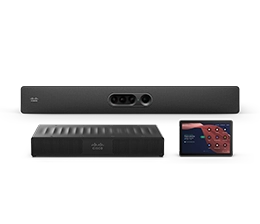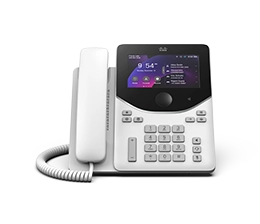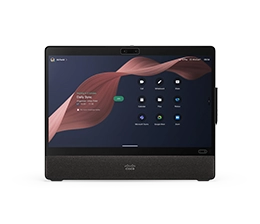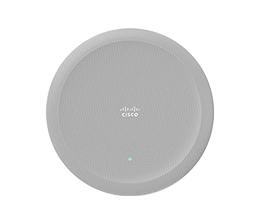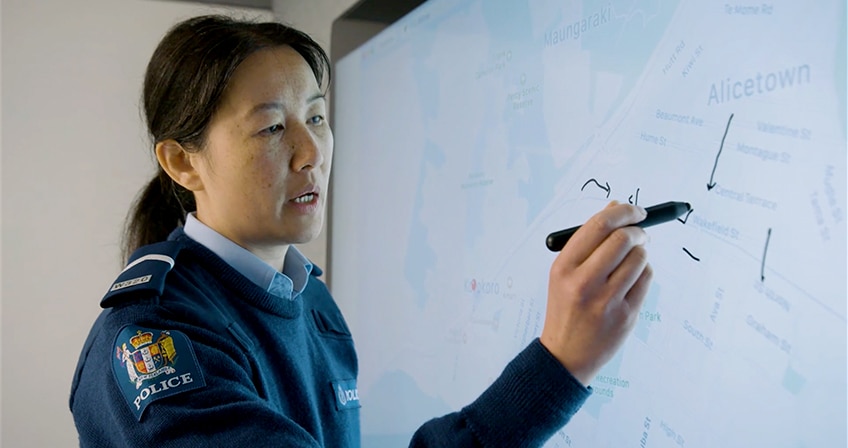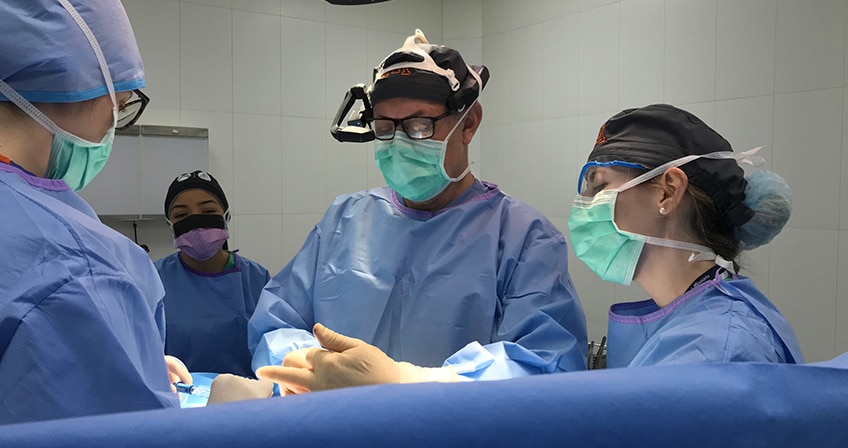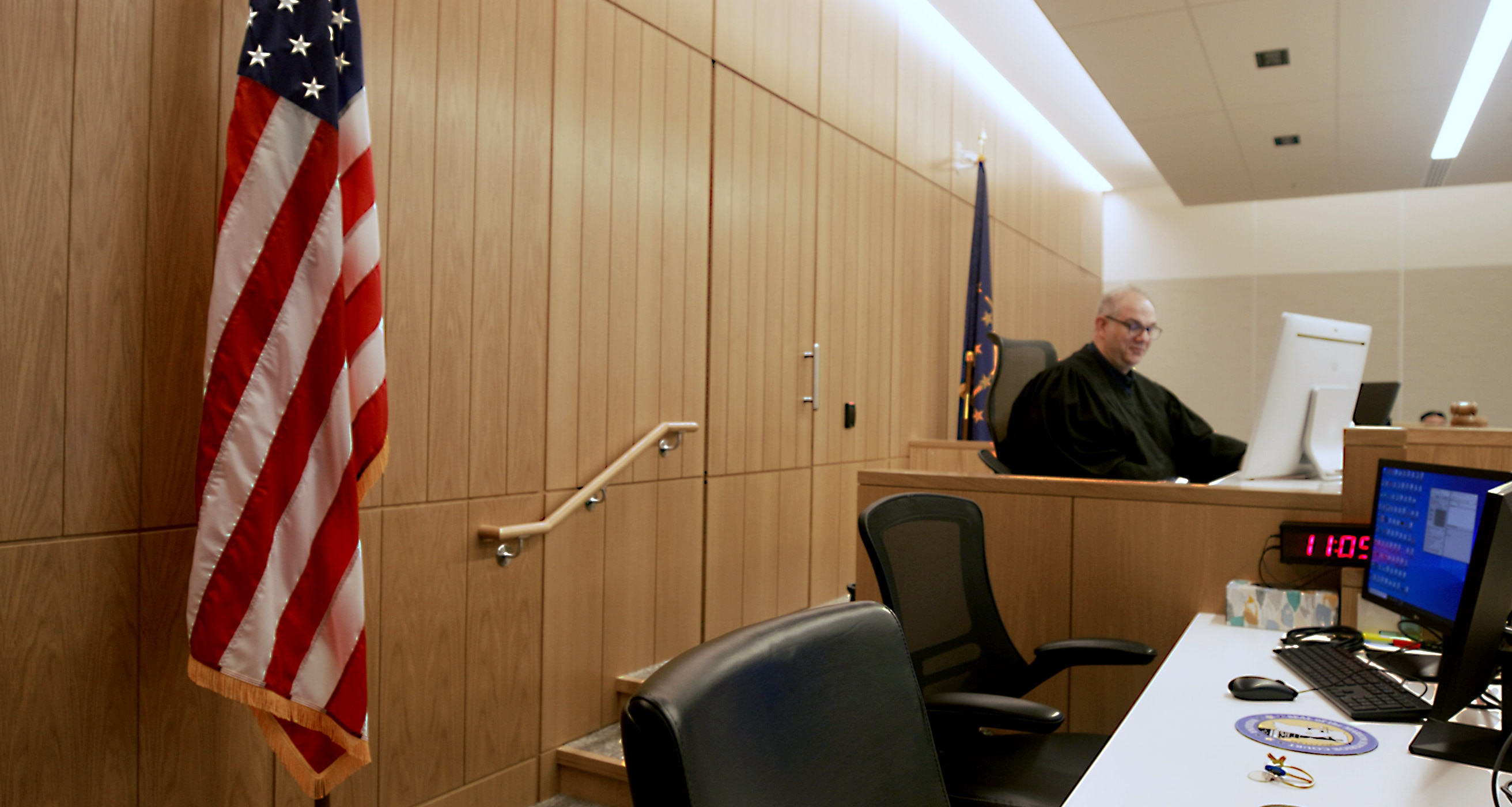
The City of Indianapolis and Webex enable hybrid courtroom hearings with cloud technology.
Marion County needed to bring its entire court system online to maintain continuity during the pandemic.
Webex Meetings and Webex Calling help judges, staff, inmates, and more connect over seamless video conferencing and telephony.
The Community Justice Campus receives the National Center for State Courts’ award for best hybrid courtroom design.
You can’t put a price tag on justice.
However, you can put one on a state-of-the-art, groundbreaking, and award-winning criminal justice center.
Nobody knows that better than the Marion County Superior Court’s Amitav Thamba. As Chief Technology Officer for the court, Thamba and his team handle all IT-related court processes. That includes training staff, judges and magistrates, handling logistics, and—since joining the court in 2001—bringing courtroom operations into the 21st century.
“One of the first things that the judges wanted from me in this newly created position was to move from our old mainframe system called JUSTIS, which was in operation since 1989,” he explained. “The second was to build a new building.”
12 stories, 475,000 square-feet, and $590 million later, the Marion County Community Justice Campus opened its doors in May 2022. Equipped with innovative new technologies from top to bottom, the building has unified the city’s once-scattered judicial system and enabled a new approach to courtroom hearings.
Anyone who’s ever worked on a project as massive as a half-billion dollar campus knows they only happen once in a blue moon. For Thamba, whose four-person team was responsible for outfitting the entire building, getting the job done right was mission-critical.
Of course, that’s easier said than done. It’s even harder when you’re simultaneously maintaining operations for an entire county’s judicial system. And, it’s even harder when you’re doing so in the face of a global pandemic. Fortunately, Thamba’s always thinking two steps ahead.
“Way back in December of 2019, I had been watching trends across the world and felt like something big was about to happen,” he said. “I went to my Court Administrator, Emily VanOsdol and the Executive Committee of judges in early January and created what I call a rudimentary disaster recovery plan.”
As part of that plan, he knew that remote hearings would be important. He had explored them in the past, but they never panned out the way he’d hoped. They’d tried implementing them several times over the years using every system on the market—but never to any success.
“It was the pandemic that really spurred the transformation. People realized there was no other way, especially once the shutdown happened,” he said. “Everybody has Constitutional rights. How do you function as a court system to keep the wheels of justice running?”
Luckily, he had a partner he could trust in Cisco. Being a long-time partner of the City of Indianapolis, he knew Cisco’s expertise would step up to the challenge.
On Friday the 13th of March 2020, Thamba’s presiding judge, Hon. Heather Welch and court administrator VanOsdol walked into his office. They had one question: How long would it take to get the entire court system running remotely?
“To which I picked up the phone, called Cisco, and said ‘Okay, we’ve got one hour. That’s what I told the judges,’” he explained. “The rest is history.”
By Monday morning, the court was able to successfully execute their arraignments via Webex Meetings, a cloud-based video conferencing platform. A week later, the complete judicial system was up and running. And the best part? It never stopped once during the pandemic.
“Having Cisco as a partner was huge,” Thamba claimed. “It’s a simple enough system that I could train staff and set procedures overnight. It’s my personal opinion that the key differentiator was that we could quickly go remote using Webex by Cisco.”
He went on to say that Webex’s clean user interface was especially helpful. This made it easy to train the judge’s remotely, as they quickly took the platform’s intuitive controls. And, he said, it was especially helpful having Cisco as an extension of his own team.
“We had over a dozen people dedicated completely to our needs during the first month, to the extent that the Cisco team even raided its local office for devices, wrote IOUs, and implemented those units in the jail,” Thamba explained. So, it wasn’t just systemic help, but physical assistance, too. This was key in enabling inmates to run remote hearings and connect with their attorneys in a hurry.
However, the court’s challenges didn’t end there. They soon realized they needed breakout rooms for people to have one-on-one sessions with their lawyers in a secure, virtual environment. It was also essential that these parties can easily hop back into the court proceedings without trouble.
“By August of that year, we had sophisticated breakout room functionality built into the core Webex product,” Thamba said. “We’d bring issues to Cisco, and they’d rapidly work on them.”
Notably, the city of Indianapolis’ court system didn’t allow cameras until early 2023, but that didn’t deter Thamba from taking a leap of faith.
“I knew eventually once we were out of the pandemic we could use Cisco technology to hold hybrid hearings. The thought is that you may have a witness who’s unable to travel. You could have a doctor testifying on behalf of the defense, or it could be a child that doesn’t want to face their abuser in the courtroom. So, we went ahead in late 2021 and wired our courtrooms to allow for that.”
Thanks to Thamba’s forward-thinking, the Community Justice Center now has 71 courtrooms fully equipped with cameras. They average over 1,200 hearings per day—50% remote, 50% in person.
If you ask him, he’ll tell you he doesn’t see this changing much. Why? Because it’s better that way.
“In the old days, if you received a traffic ticket you’d have to take a day off work and sit in court not knowing when your case would be called,” Thamba explained. “We’ve changed the process and mindset by giving you an actual time, allowing you to join the Webex Meeting without ever even leaving your workplace. It just makes it easier for court processes to happen.”
Webex has even changed the way judges and staff meet with their external partners and agencies. In these cases, Thamba claimed, Webex has replaced the proverbial telephone with all-in-one collaboration devices.
“I’ve outfitted all 80 of my judges and senior court staff with Desk Pros. Instead of picking the phone up, they just hop on a video call and get to talking,” he added. “One thing we’ve also implemented is Webex Calling, the Cisco telephony system. If someone leaves a voicemail, it transforms it into an attachment and sends it via email. With Webex Calling, you can use your personal cell phone and answer a call even though you’re not at your desk.”
Thamba’s especially excited by the Webex Platform’s built-in artificial intelligence capabilities, such as real-time closed captioning and background noise removal. Although they’ve yet to leverage real-time translation, he’s looking forward to exploring new functionalities in the coming year.
Marion County’s Community Justice Campus has even caught the eye of the National Center for State Courts (NCSC). One year after its opening, the campus received an NCSC award for hybrid courtroom design.
Despite the success, Thamba doesn’t plan on slowing down anytime soon. With the county’s probation department recently moved into campus, and more departments on their way, he’s focused on using Webex to connect them all under one umbrella.
“Webex is something we intend to grow and continue to use,” he said. “There are so many capabilities that the Cisco universe brings to the court, and we’re just beginning to scratch the surface.”
Get in touch with our team today to learn more about how Webex can improve collaboration and customer experience at your organization.
Marion County Superior Court leverages Webex solutions and Cisco devices to transform its courthouse into a hybrid-ready facility.
Webex’s intuitive technology enabled the court to onboard staff in hours, allowing the court to continue remote hearings and meetings.
The breakout session feature in Webex Meetings allows the court to host secure one-on-one sessions between lawyers and their clients.
Webex technology enables the court to launch hybrid hearings, allowing participants to join remotely.
One year after its opening, the Marion County Community Justice Campus received an NCSC award for hybrid courtroom design.
The court is looking forward to exploring how it can leverage Webex’s built-in artificial intelligence capabilities, including real-time closed captioning, background noise removal, and real-time translation.



